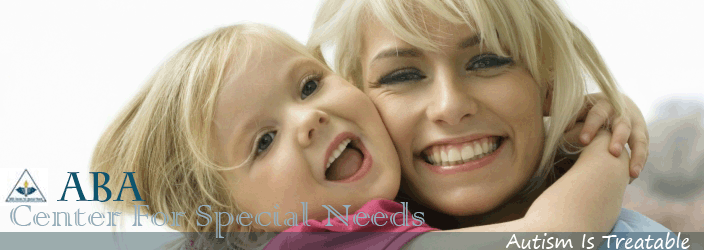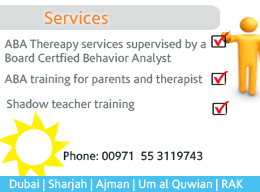Speech therapy to ensure overall development of your child
Has your child�s teacher recently expressed her concern regarding the little one�s language and speech problems? Or is it you who noticed his/her stuttering issue? Whatever the situation is, probably your child needs speech therapy to overcome the communication problem and speak confidently.
Some kids often face trouble in stuttering certain words or saying some sounds. This can be even more irritating for others who try to understand what they are saying. These conditions demand immediate intervention.
Understanding speech and language disorder:
While most people often confuse, there�s a difference between speech and language disorder.
- Speech disorder: Difficulty in producing speech sounds fluently with appropriate voice.
- Fluency disorder
- Articulation disorder
- Voice disorders
- Language disorder: Problem with understanding and putting words for communicating ideas.
- Receptive and expressive disorder
- Expressive disorder
- Receptive disorder
Here is an elaborate list of different communication disorders individuals usually suffer from.
- Dyslexia: Problem in reading
- Asperger Syndrome: Issues in pragmatic and social language
- Dysnomia: Word retrieval issue along with deficit
- Autism: Problem in social interaction and communication
- Cerebral Palsy: Is a motor speech disorder.
- Hearing impairment: Problem with voice recognition, sound perception, understanding speech, etc. In this case, the child requires custom Auditory Verbal Therapy.
The therapist, more precisely known as a speech-language pathologist or (SLP), helps kids with these different types of speech difficulties to enhance their language skills.
A short brief on speech therapy treatment
This therapy is a treatment process customized for individuals to correct their speech and language disorder. Therapists help them in gaining the ability to communicate fluently.
Mainly, these 2 components are included in the speech therapy treatment process.
- Mouth co-ordination for producing sounds for forming words and hence, meaningful sentences. Issues treated through this method are �fluency, voice volume regulation, articulation.
- Understanding the language and expressing in their own words. It is used to treat language using body signs, pictures, written form, etc. Therapists also use computers, iPods, and social media in the treatment procedure.
Let�s put 5other ways in which an SLP can help your little one:
An expert in speech language pathology can help your child in many different ways. Read on!
- Improving listening skills:
- Kids naturally possess the skill to understand things better. SLPs will help those with speaking disorder to improve this skill.
- They guide in developing their vocabulary to make them accurately express their thoughts and feelings. Once the child starts listening, they will learn faster.
- Enhancing self-confidence
- Helps them in gaining the ability to make correct sounds.
- They make the child understand his/her own body language.
- They also help them in understanding non-verbal communication.
- Help them socialize
As a result, the child can go out, meet people and interact with everyone confidently.
Learning to make new friends will help them understand the importance of relationships. SLPs through speech and language therapy build their skills, regardless of their developmental stage, for making friends and interacting more.
Succeed in educational environment. A child with speech disorder mostly faces difficulty in his/her school. Therapists, however, ensure an overall development to excel even in an education environment.
- SLPs make him comprehend multistep directives.
- Guide the child to recognize nonverbal communication from adults and others.
- Again, the child learns to make himself understood to the other person.
As a whole, experts at the speech language pathology assist them throughout in improving all these various skills. Such therapies are extremely effective in treating kids with dyspraxia and dyslexia.
A quick peek into some statistics:
- Around 18.5 million people are suffering from voice, language and speech disorders.
- 1 out of every 12 children between the ages of 3 and 17 have a speech disorder.
- 7.7% of children suffer from swallowing disorder.
- 1.4% children are facing voice difficulties.
- Those aged between 11 and 17 have multiple disorders.
Exercises and activities to correct speech and language
Drawing cue from the above points; let�s next move on to speech therapy exercises. The activities involved vary with age as well as individuals. While SLPs evaluate a child�s condition to provide him/her with specific therapy, some general exercises work well with different age groups.
*Note: Before you start, ensure that the television is switched off. If it remains on in the background, that may disrupt the process making it tough for the child to learn. Research says, �Children who have more exposure to the television have a delayed development process.� Well, you know what you have to do!
Speech therapy for 2-year-old and below:
- While you feed, bathe and dress your child, keep talking to him. Where you are going, what you are doing, whom will you meet, etc.
- Tell them to count things with you.
- Try to imitate his expressions.
- Make them identify different colors.
- You can make various animal sounds and make the child associate with it.
- Often meanings are best conveyed by using gestures. Suppose, wave goodbye.
- Spend some time playing with your baby.
- Make sure to acknowledge their attempts and encourage them more.
Speech and language therapy for children between 2 and 4
- Help them in identifying body parts. Time to expand their vocabulary.
- Show them photographs of places or people. Try to tell them a new story so that they can associate words with images.
- While using baby talk, make sure to accompany it with the right adult word. For example: �Let�s sit for din-din. We�ll have dinner now.�
- Use action words.
- Give them a choice between two things. Ask such questions that make them say the word on their own.
- Ask simple questions like � �what, who, where.'
- Give little longer instructions like �where�s mummy�s dress?�
- Gradually, start speaking in plurals adding /s/ to words.
Speech and language therapy is best given by SLPs who know the right method of helping your child with their expressions.
Therapy for children up to 6 years
- As they grow up, they tend not to listen. So, always make sure you have their attention before speaking.
- Increase the conversation and engage in much longer talks with your child.
- Give them a new word and ask its meaning.
- Don�t overlook their spoken or facial expressions just to make your point understood. You should also pay attention to what they say.
- Help them understand sequences with words. �First we�ll go to the park. Next, we�ll have ice-cream.�
Some other exercises and tools: Apart from the above mentioned, other essential toolscan engage the child in different exercises. Using flashcards These cards are extremely helpful tools for speech and language therapy for preschool children who have difficulty in focusing on sounds. These cards have images of different objects (living and non-living) along with their names. Activities you can do:
- Name an object on any of the flashcards and ask the kid to point it out.
- There are cards with �wh-� and �yes/no� questions on them. Try to engage in such question-answer session.
- Apply the grab bag method. Put all the cards in a grab bag and ask your child to pick one flashcard from it. Once he does that, he would have to say the word or question on it. He can only grab the 2nd card after he answers the previous.
*Note: Don�t forget to reward them once they succeed. Using speech treatment Apps Lots of educational apps are there that can be used in speech therapy . Experts use those for collecting samples, record data and inspire students.
- Helps in accurate monitoring of the child�s progress.
- It�s a cost-saving option.
- Can be adapted and customized as per requirement.
- These are fun, entertaining and motivating.
*Caution:
- Avoid using such apps at home as those might not be appropriate for a particular child. It is recommended to use those assistive technologies after proper assessments which only professionals do.
- Think about the child before using the technology. Understand what your target is and then, go ahead.
- Don�t allow too much of exposure to the screen; or else the reverse might happen.
- Use technology as a tool in the therapy, not a replacement of the therapist. Communication improves best with interpersonal interaction.
Example of few apps for speech therapy:
- Auditory Workout � 4 to 10 years .
- Peek-a-Boo Barn Lite� 0 to 3 years.
- Speech Tutor�For all ages.
- iSequence �5 to 7 years.
- All Critical Thinking � 10 years and above
Speech and language disorder is something that anyone from a toddler to an adult can suffer from. However, the process is much planned, which also involves constant monitoring of the person�s progress and modifying the treatment accordingly. Hence, it�s always better and safer to seek professional speech therapy services for proper guidance. Our newly opening center in Dubai offers free speech assessment for first 25 kids.
Now, this brings another important factor to light � choosing the best pathologist offering speech and language therapy for children.
Tips to select the SLP:
- Enquire about their experience
- What�s their field of expertise?
Experience of the SLP is foremost for dealing with such children. It not only gives them the practical know-how, but also teaches them to be patient, compassionate and understand child psychology. Those in this field for years are aware of the various speech and language challenges faced by patients of different ages.
There are generalists, and then there are specialists. While both of these categories are reliable and proficient, you must confirm the area of specialization of your chosen SLP. >/p>
More precisely, the procedure of speech therapy for autism is different and need a pathologist whois specialized in it.
- Enquire about the pathologist�s achievements and credentials
Usually, speech therapists must complete master�s degree as their minimum education requirement. The next step is, of course, doctorate. The reason being, in master degree programs, they can gain practical knowledge under the supervision of a senior practitioner.
Although it�s a mandatory criterion, yet reconfirm whether the pathologist you are choosing is licensed or not. This will also ensure; they will follow ethical standards while imparting treatment to patients.
- Does he focus on planning before treatment?
A good and reliable professional of speech therapy will always focus on planning and strategizing the method of treatment. After initial assessment of the patient, he/she should frame out the procedure.
If need be, your SLP can also involve other specialists in the treatment of the patient. Your child�s teacher might also play a major role in framing most effective method of development.
Again, he should also be willing to share his plans with you. A good speech-language pathologist considers the child�s parents as an intervention partner in the process. After all, there should be transparency in every level.
As a guardian, you must confirm few other things to the therapist.
- Ask if they will allow you to be present at the session. However, often they don�t approve such requests as the child might get distracted. But in such cases, you can always stay outside the class to listen and try back at home.
(Tip: Avoid choosing therapists who are uncomfortable to have your presence in any way during the session. In our speech centers in Dubai and other emirates we allow parents to sit in the room during sessions. This will ensure 100% transparency between parent and therapist. )
- Some therapists allow parents to interact and engage in activities with your child.
- Clarify beforehand regarding the payment issues � the fees of speech and language therapy, additional costs involved, initial fees, etc.
- Make sure they will give you progress report at the end of session. He must keep you updated regarding progress, plan change, etc.
- You should have easy access to the professional regarding your queries.
Choosing someone whom you can rely on, entrusting the job of your child�s development is an extremely importance decision. Make sure you are satisfied in your conversation with the therapist before finalizing the person.
Now�Most parents come up with certain other questions regarding this speech disorder. If you have similar queries, here are the answers.
FAQs on speech language therapy
- Which is the best age to take your child for therapy?
- What are the various warning signs of communication disorder in the child? Here�s the list. Within 6 months from birth -
- What is the maximum time of giving this therapy?
- Is your child fighting other behavioral challenges apart from speech and language?
- As a parent, how much involved are you in the process?
- How much ready is the child to participate in such programs? This is more important for speech therapy for autism, because children with behavior issues will take more time to learn.
- Competence of the pathologist has a great impact on your child�s development.
- Do you have realistic expectations from the sessions?
You can take them to SLP at an early age .Get him to the professional the moment you identify this issue. Earlier you begin sessions; better will the results be.
Eye contact is limited, various medical issues, developmental problems, very less vocalization, almost no interest in speech, attachment issues, reluctant in socializing, minimum response to sound. This indicates need of speech and language therapy.
Between 6 and 12 months �Inability to make sounds, sound production is limited with no variety, difficulty in consuming solid foods, drooling excessively. The existing problems from birth continue to remain with these add-ons.
Between 12 and 18 months �Along with all those above, the additional symptoms are lack of understanding any direction, sound or words, easily distractible.
Between 18 and 24 months �Reluctant to play games, no imitation or any such interest, not using words for communicating, primary communication mode becomes pointing and grunting.
Between 2 and 4 years old �Not using any word combination, no development in understanding words, using nouns only, limited eye contact, doesn�t entertain looking at books, listening, not completing sentences, etc. They don�t use �I� for referring to self.
Well, the duration varies according to the severity of the case. After the initial assessment, the SLP will be able to give you an approximate idea. However, it might vary as the treatment progresses. Some other factors determining the therapy�s duration are �
(Usually, each session continues for 45 minutes. It takes around 1 hour for simple initial assessment and 1 and � hour for complex processes.) Remember, your kid is unique and so should be the process. Therapies should not be identical but tailored. So, now invest in the development of your child with right speech therapy sessions from proficient speech-language pathologists.







